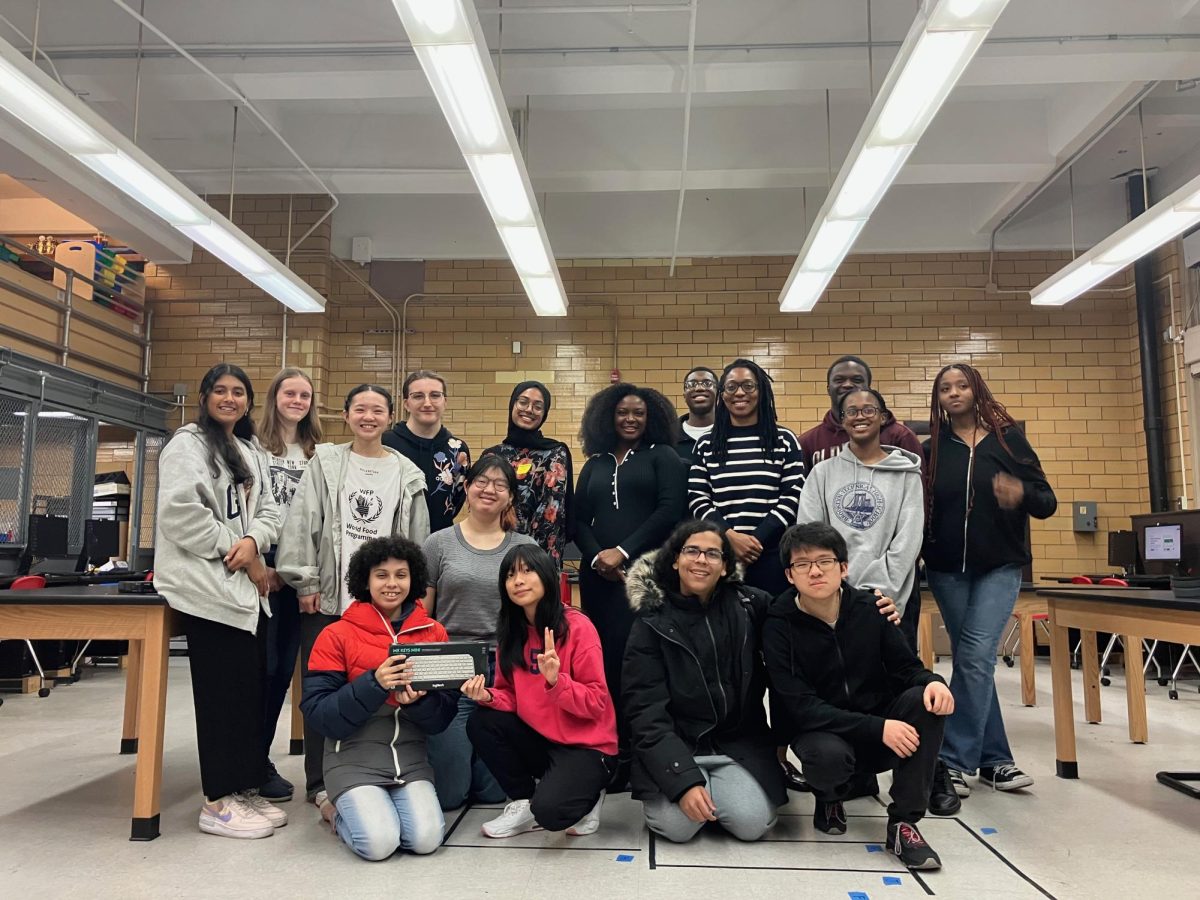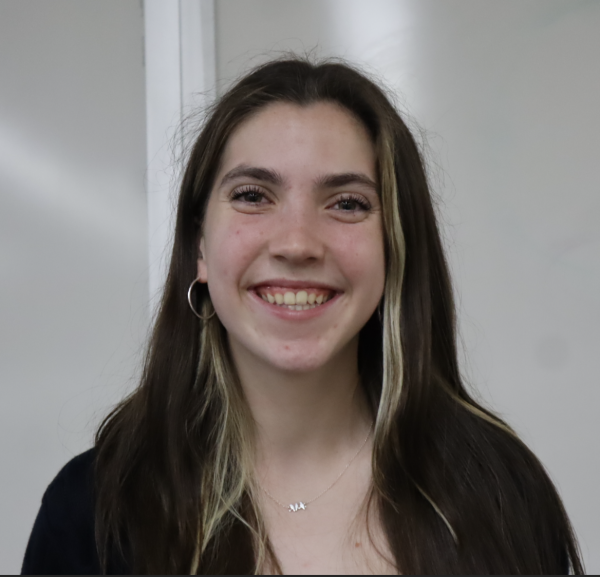Although Brooklyn Tech students have the opportunity to explore the realm of software engineering through electives and major classes, gaining experience to shape their potential career is not limited to just the classroom setting. Girls Who Code (GWC) is a non-profit organization dedicated to increasing inclusivity in the software engineering field. Among the many coding-centric clubs at Tech, BTHS GWC opens the door for women and non-gender-conforming coders. The club hosts biannual hackathons where students can display their skills and learn from their peers.
GWC meets every Monday in room 2N4, where the club’s student mentors teach coding skills to all levels of experience. The club is on a mission to close the gender gap in STEM fields and change the image of what a coder looks like. Every year, the club hosts two hackathons, one during the winter and one in the spring. This year, the club partnered with TechCodes and the National Society of Black Engineers (NSBE) to host the winter Hackathon.
Although the chapter appeals to girls and non-binary coders, the hackathon was open to all students at Tech. “The DOE said it was discriminatory that we didn’t accept boys, so we had to open up to the whole school,” said Software Engineering major and Vice President of the chapter, Ashley Leung (‘24).
Unlike previous Hackathons held at Tech, this year’s event was sponsored by Microsoft and Logitech. Leung had reached out to Logitech in hopes of securing a sponsorship or prize money, and fortunately, they agreed to provide the club with $1,000 worth of products such as keyboards and mice. Leung also created a judging panel including two of Microsoft’s team members, Kemba Hall–a product manager for Microsoft– and Courtney Greer–a senior technical program manager at Microsoft–along with five GWC alumni.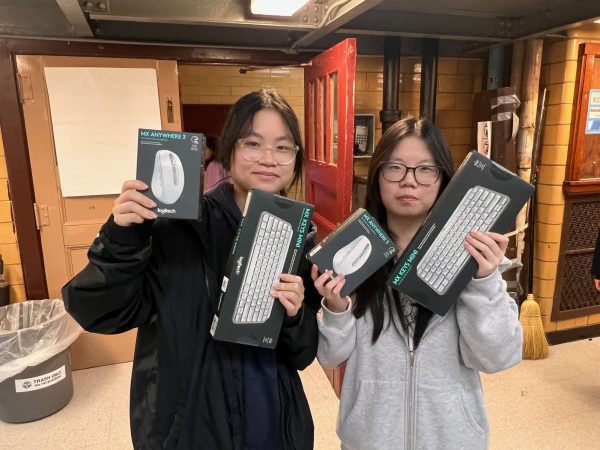
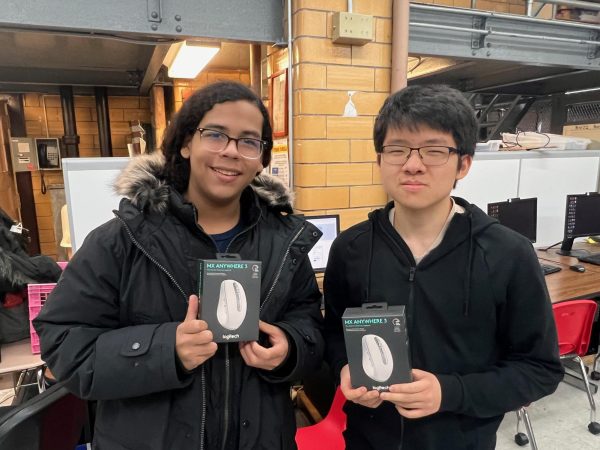
This winter’s Hackathon was a virtual event from December 8th to 18th. On December 8th, the opening ceremony announced the prompt for the coding projects: to create a project in any coding language that helps a community of the contestants’ choice and submit it to the judges by December 14th.
The judging panel graded the projects on a scale from one to eight in four different categories with a perfect score earning a total of 32 points. The criteria included addressing the prompt, tackling the problem through an innovative method, appearing functional and aesthetic, and incorporating code for future expansion.
GWC members Emily Yang (‘26), Rita Zheng (‘26), and Summer Samara (‘26) placed first in the competition with a project called “Mingo” which focused on improving mental health for the general public, earning 24 out of 32 points. “We hoped to remove the stigma surrounding the topic of mental health by giving information about what can cause mental health problems, how you can help yourself, and where you can get help,” said Yang.
To meet as many requirements in the rubric as possible, Yang explained that the group “included an interactive bingo board filled with activities that can improve both physical and mental health.” She added that “the idea behind it was that every day the user can refresh and randomize the board, and the board motivates them to complete the tasks.”
With a winning project to show for their five days of hard work and revisions, each member of the group was awarded a Logitech keyboard and mouse.
Despite their big win, Yang revealed that this was her group’s first hackathon, so they did not expect to place high in the competition. As Yang related, “We lacked any experience in creating websites or any of the languages involved in creating one, so it was a struggle trying to learn everything as [they] went along.”
Another challenge presented was the time constraint. “We weren’t able to learn everything in depth and could not code some things, so we had to change our website to accommodate that,” added Yang.
Along with the challenge came a learning curve that would be beneficial to all participants later on in their coding experience. “Overall there was a lot of stress and panic between meeting the deadline, learning what we could, and then actually coding our project, but it was definitely a good learning experience,” explained Yang.
GWC fosters an inclusive learning environment where coders create a community and learn from one another. “Hackathons in general are for you to get to know each other,” emphasized Leung. “It’s not the competition that’s important: it’s connecting, meeting with new people, getting feedback on your project from the judges, and also experiencing what a community is like working under time constraints, seeing what to do to reach out to people when you need help.”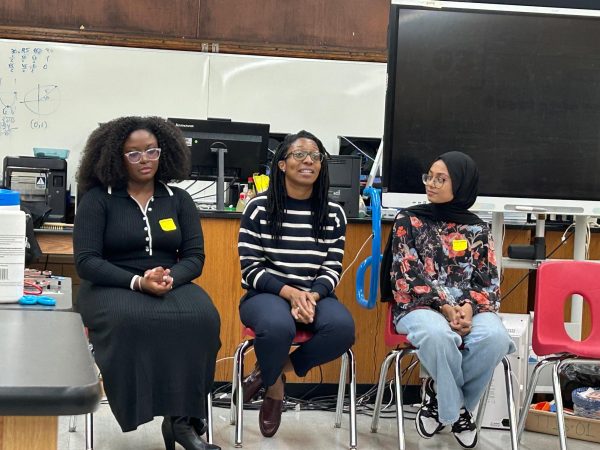
Software Engineering major Amanda Chen (‘24) also participated in the Hackathon this winter, where her group’s project aimed to help students at Tech purchase affordable and sustainable fashion. Chen explained that “although [her group] didn’t win, [she] felt accomplished that [her] team came up with a creative idea and created an application in less than a week’s worth of time.”
Ms. Shaina Doherty, GWC’s advisor and a Computer Science teacher at Tech, described the environment she observes every meeting on Mondays. “It’s a lot of giving, it’s a lot of sharing and a lot of encouraging each other. Students will struggle with something, they either ask for help or simply stand up and go across the room to help somebody that needs a hand.”
With another successful hackathon, the club continues to look for eager coders who want to gain more experience in coding. “Don’t be scared. We are beginner-friendly. A lot of our members are beginners and we try to create a really welcoming environment, especially related to women in STEM so people feel comfortable.” said Software Engineering major Dara Benyacar (‘24), a GWC mentor.






































